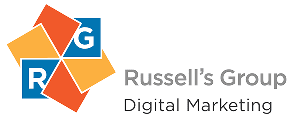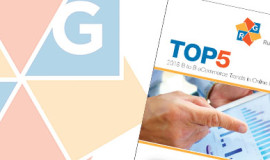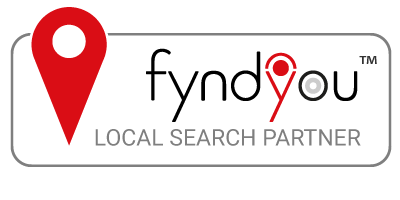Digital Marketing Definitions
Internet Marketing Definitions
Familiarity with the definitions of these common internet marketing terms is a great way to get acquainted with the tools and concepts at work online.
Internet Marketing:
Marketing of products or services over the internet by means of Search Engine Marketing, Affiliate and Social Media Networks and related media. A.k.a. web marketing, online marketing, or e-marketing
The official Google online advertising tool for sponsored search, mobile, display, TV and contextual targeting ads.
Analytics
Web analytics is the collection and analysis of internet data that can be used as a tool for business and market research and for SEO purposes..
Authority
The qualities that attract people to a website, motivate them to stay a while, interact, comment and bookmark it, which means that the search engines are more likely to index useful new content quickly, and give the site higher rank. Backlinks from “good neighborhoods” are the hallmarks of authority.
Backlink
A link that originates from another website, including a bookmarks. Backlinks represent a vote of confidence in a website, and backlinks from authoritative sites have a big influence on Google page rank. Also called inbound links and incoming links.
Black Hat
A class of techniques that degrade the relevance of search results and user-experience of search engines. While these techniques may temporarily improve a site’s SERP position, they raise the risk that the site will be removed from search indexes. Black hat techniques include spamdexing, link farming, keyword stuffing and article spinning.
Bot
A software application that rapidly runs simple and structurally repetitive automated tasks over the Internet. In the context of web marketing, bots are the applications that index (spider or crawl) websites. A.k.a. web robots, WWW robots, internet bots
Bounce Rate
The percentage of website visits where the visitor enters and then leaves without visiting any other pages on the site. A visitor who bounces off the landing page doesn’t buy, provide you with a lead or even a bookmark. A.k.a. single-page visits. We make sure your site entrance pages are keyword rich and relevant to your visitors, so they will stop, look around and convert.
Conversion
The action you want your site visitor to take before they leave your site (or specific landing page) such as make a purchase, fill out a contact form, register for a newsletter, download software, etc.
Crawler
A computer program that methodically browses the Web creating a copy of all the visited pages for later processing by a search engine that will index the downloaded pages. When a searcher enters a keyword, the search engine retrieves the URL of an indexed document and places it on the search engine results page (SERP) based in large part on the keywords contained in the document that match the search query.
Directory
A list of links to sites on the World Wide Web displayed based on categories and subcategories derived from the whole website, rather than according to individual keywords. Web directories are generally edited by humans rather than web crawlers. Russell’s Group carefully submits your site to numerous appropriate general and specialized directories, ensuring that they will be reviewed by the editors.
Index
A process whereby a search engine, like Google, crawls through a website reading the source code, and then storing in a database a list of keywords relating to each page (URL) it accesses. The keyword database is used to find pages on the site when a user performs a search operation.
Internal link
A hyperlink to another section of the same document or to another document on the same website or internet domain.
Internet
A worldwide system of computer networks in which any user with permission can get information from any other computer. Conceived by the U.S. government in 1969, the original aim was to enable a research computer at one university to “talk to” research computers at other universities. Today, the Internet is a worldwide public facility accessible to hundreds of millions of people.
Keyword
The word an internet user enters into the search box on the Google, Yahoo or Bing home page. A keyword (or keyword phrase) is the point from which a search engine begins when it looks for matching web pages that contain one or more words specified by the user. You want great keywords in your documents. Russell’s Group can tell you which keywords you need.
Landing Page
The specific webpage a user is sent to when they click on a link. Landing pages should. A “sticky” landing page compels your visitors to stay on your site and convert. You can minimize bounce rates by tailoring landing pages to keywords and providing the information and services that were promised in the snippet and ad copy.
See Search Engine Marketing
Pay Per Click Advertising. Search Engine Marketing
A computer program that retrieves information stored on its data bases, called servers, in response to a user query and displays it on a Search Engine Results Page (SERP). On search engines like Google and Bing, queries take the form of keywords entered in search boxes the supplied by the engines. The information stored on the servers is collected by programs called crawlers that catalog and index information from websites on the World Wide Web. A.k.a. web search engine
The advertising model whereby an advertiser places an ad on a search engine and pays only when the ad gets clicked, sending a user to the advertiser’s targeted landing page. A.k.a. Pay Per Click Advertising, SEM
The process of improving the visibility of a web site to the search engines and improving the site’s position on the Search Engine Results Page.
See Search Engine Marketing
See Search Engine Optimization
See Social Media Marketing
Using the Social Media applications on the Internet to connect directly with your prospects and customers, generating exposure, opportunities and sales. Social media marketing tools include Twitter, Facebook, Blogs, and YouTube.
See Crawler





